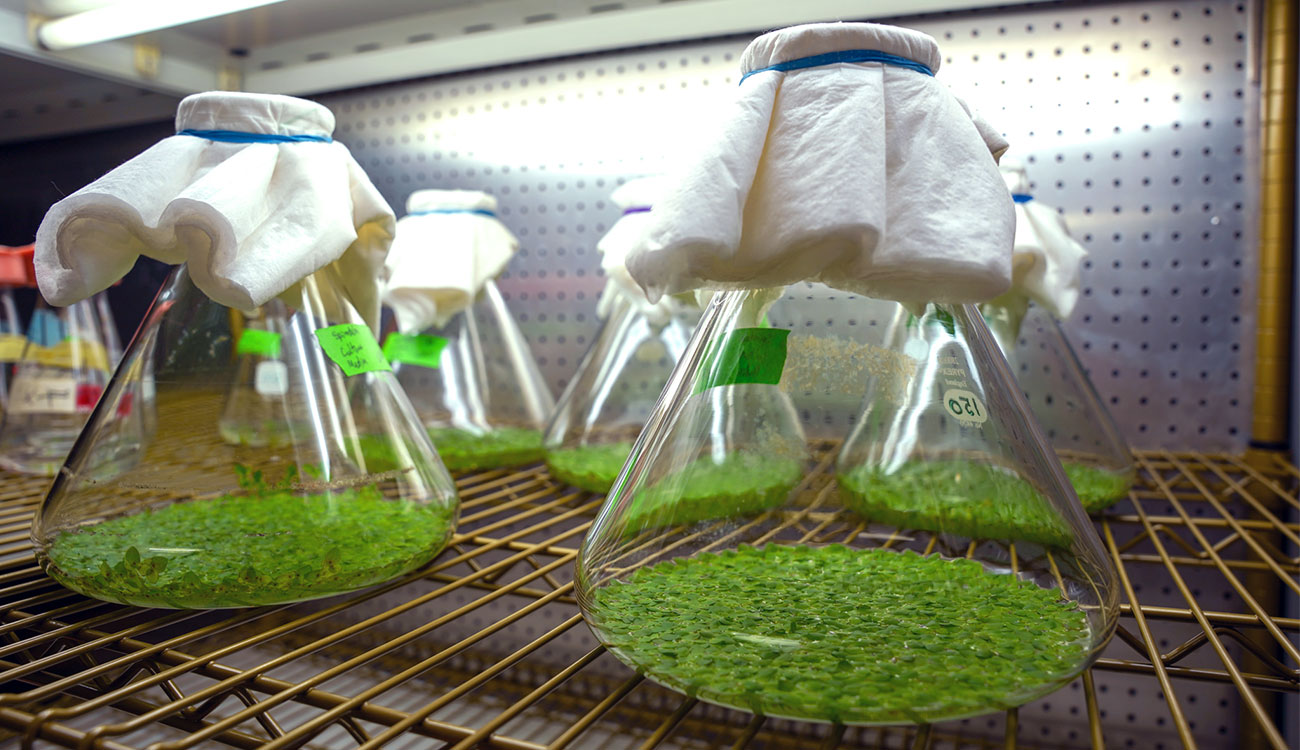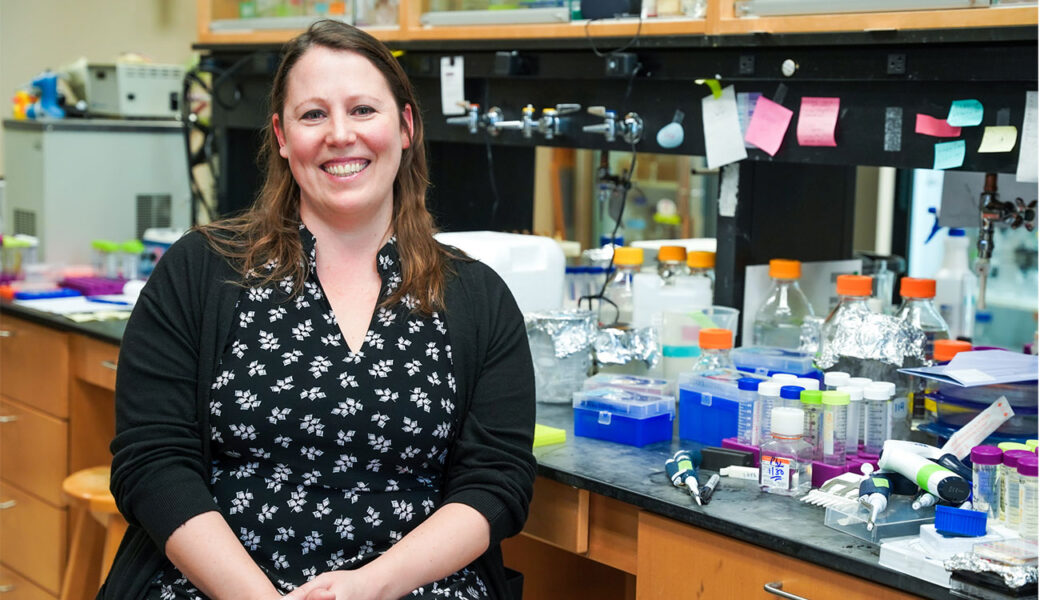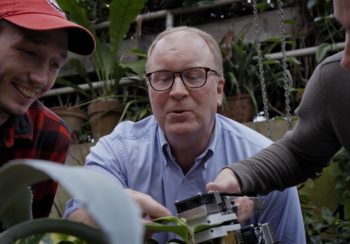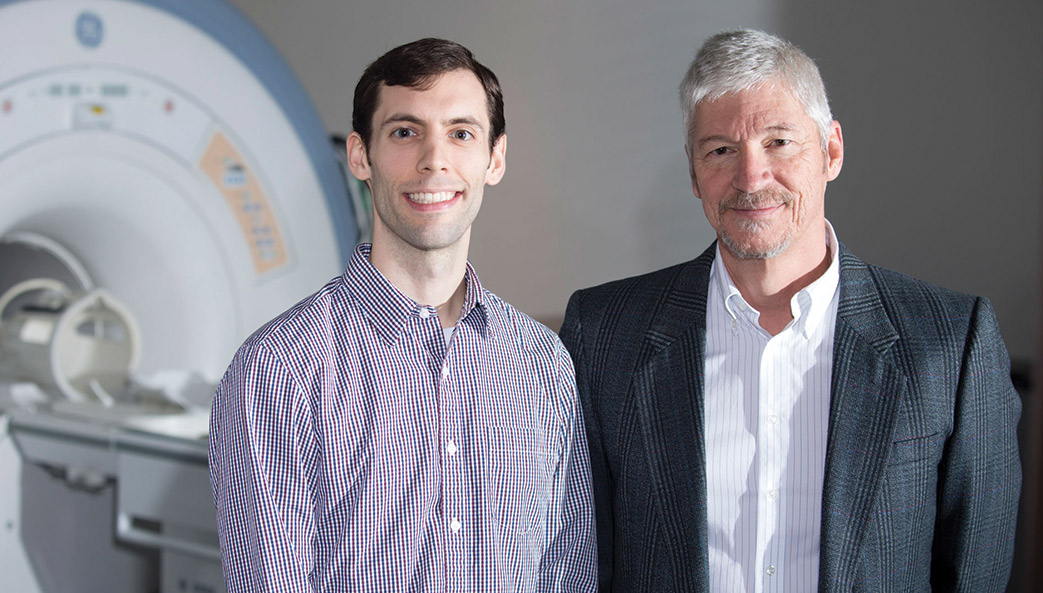Breeanna Urbanowicz is an assistant professor in the University of Georgia’s Department of Biochemistry and Molecular Biology, housed within the Franklin College of Arts and Sciences. She also serves as the leader of the University’s plant biopolymers faculty group and as a researcher in both the Complex Carbohydrate Research Center and New Materials Institute at UGA. In this interview, Urbanowicz discusses her extensive research in complex carbohydrates and how that contributes to creating more sustainable products.
What got you interested in carbohydrate science?
I completed my bachelor’s degree at Purdue University, and it was kind of happenstance the way I became involved in complex carbohydrates. I come from a family of very hard workers, and my sophomore year they decided it was time for me to get a job.
I went looking for a job in the biology department, and they told me they didn’t have anything but that someone in the botany department was hiring. So, I walked over to the botany department, and standing in the main office when I walked in was Nick Carpita, a world-famous cell wall researcher.
The rest is history—I started working in his lab and worked there until I graduated. I then stayed on for an extra year as a full-time technician and decided that I loved working with cell walls. That’s how I decided to go to Cornell, where I got my doctorate.
What kind of research do you oversee in your lab?
We do several different aspects of plant glycobiology and plant biochemistry, but a large part is focused on understanding plant cell walls. Most people don’t realize that essentially everything from the clothes we wear, the food we eat and all of our wooden building materials are derived from plant cell walls.
If you look at the tangible differences between a cotton shirt versus a wood desk, for example, the combinations of the complex carbohydrates are quite different. They all have different properties, and that’s one of the main reasons we’re interested in working on cell walls. But one thing my lab specializes in is actually understanding not just the structure of those plant cell walls but the biochemical pathways of how the cell walls are made.
What are some challenges you have experienced in your research?
One of the main challenges in studying complex carbohydrates is that it’s a resource- and equipment-intensive aspect of biology and chemistry, even biochemistry. With specialized research, especially discovery-based research like we do, there are a lot of parts of our research where we can’t just go to the store and buy pre-made substrates. We have to generate a lot of our own materials here, which is obviously a lot slower given that we’re working with complex plant materials.
It’s a very labor-intensive process, but that’s one of the reasons why working at the Complex Carbohydrate Research Center is so great. You can almost call it being a kid in a candy store, how we have all these tools embedded in our research center that are here to facilitate our research because of its complexity.
You do very complex carbohydrate science, but it’s all pointed toward creating sustainable biopolymer products. Can you talk about that?
One of the greatest things about working on plants is that they’re the most sustainable source of carbon we have on Earth. All petroleum products are basically the carbon from plants that have been buried underground for a long time. What we really want is to start replacing products derived from petro-chemicals with feedstocks that are more bio-sustainable.
One of the projects I work on as part of the Department of Energy’s Center for Bioenergy Innovation, for example, is interested in converting plant material into the next generation of biofuels. One way we do that is to take plant biomass, which is made up of all these different sugars linked together, break those sugars down efficiently, and then either convert them into a product or ferment them into different types of fuels.
You just received a $1.8 million award from the Department of Energy to look at duckweed. Can you talk about this project?
That research is part of a funding opportunity supported by the Department of Energy Office of Science program in Biological and Environmental Research called “Genomics-Enabled Plant Biology for Determination of Gene Function.” Specifically, my group is working to functionally characterize the genes in duckweed, an emerging bioenergy crop.
We picked a gene family involved in complex carbohydrate biosynthesis that is one of the most diverse families in plants and set out to develop a high-throughput biochemical approach, so that we can empirically define the function of every single gene in the gene family.

Then, we’ll collaborate with Yannick Bomble’s biophysics group at the National Renewable Energy Lab with the hope of expanding into predictive biology for multiple gene families, getting us away from the lag phase where we have to study every single gene individually.
Studying duckweed is very intentional because it is considered to be an emerging energy crop, and we’re interested in its minimal genome size relative to other species.
Are there currently any other collaborations you’re involved with, either at CCRC or beyond?
I’m currently working with one of my long-term collaborators, Kelley Moremen. He’s a Distinguished Research Professor here at the CCRC. His specialty is understanding pathways in the synthesis of mammalian complex carbohydrates, but I finally brought him over to the dark side of plant research. The interesting thing is that we started collaborating by expressing our plant enzymes and using his mammalian expression system, and it actually works amazingly well.
I’ve also had a long-term collaboration with Parastoo Azadi, who runs CCRC’s Analytical Services and Training Lab. We’ve worked to develop new, state-of-the-art techniques to study carbohydrates.
Last, but certainly not least, I’ve had an amazing long-term collaboration with Maria Peña, an associate research scientist here at the CCRC. She actually worked in the same lab at Purdue that I started in, and we’ve been friends and worked together for more than 20 years now.
More recently, my group began working on a new project led by Robin Buell, a GRA Eminent Scholar Chair in Crop Genomics and Crop & Soil Sciences. This DOE-funded initiative is focused on developing synthetic biology strategies to reengineer poplar trees. The goal is to alter carbon allocation to cell wall polymers and produce more sustainable feedstocks for fuels, chemicals and materials.
What do you think the biggest accomplishment of your career has been so far?
If you look at a tree, one of the pathways I work on is a carbohydrate called xylan. Xylan makes up 30% of the dry weight of most hardwood trees. For example, if you’re sitting at a wood desk, 30% of that is made up of this carbohydrate. One of my biggest accomplishments is that I discovered many of the enzymes involved in that biosynthetic pathway. It’s really neat to think that over 10 billion tons of carbon every single year are made into just that one polymer, and I was the person who biochemically defined several of the genes in that pathway.
How does the broader impact of this work motivate you?
There’s no aspect of our lives that plant carbohydrates don’t touch, so my research has a huge impact. With a lot of science, we may not necessarily come to the realization of how we’re going to be able to use this knowledge right now. We eventually come to that realization and how it can work to change our lives.
Just imagine making cotton that’s naturally labeled with biocompatible polymers for drug delivery or smart sensors and things like that. There are countless other examples, too. I really think this is going to be the future, and we’re working to unlock the door to knowing how we can use these natural resources in a much savvier way.






